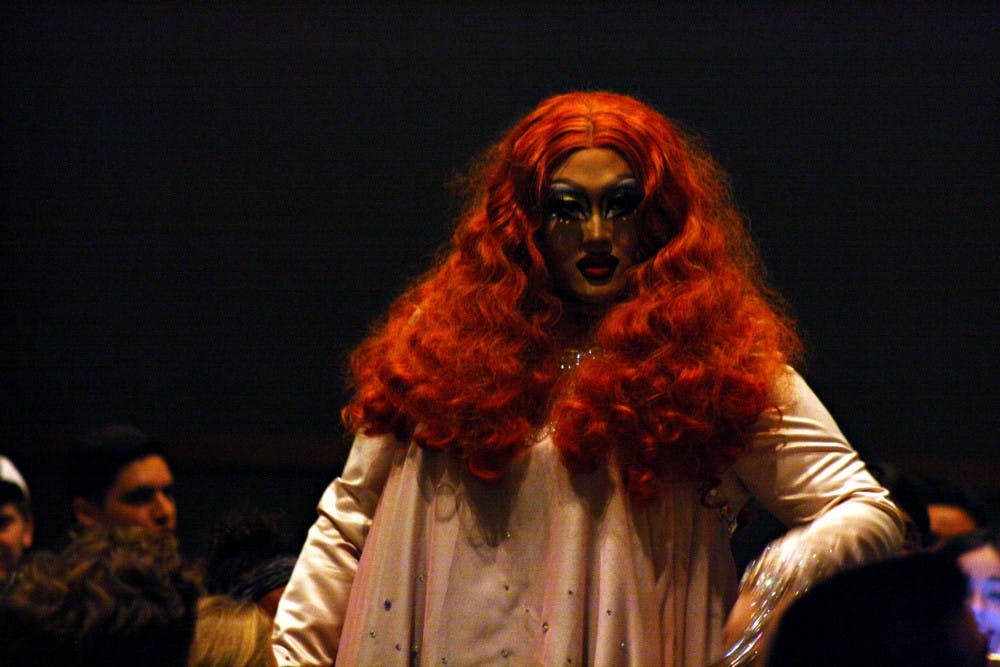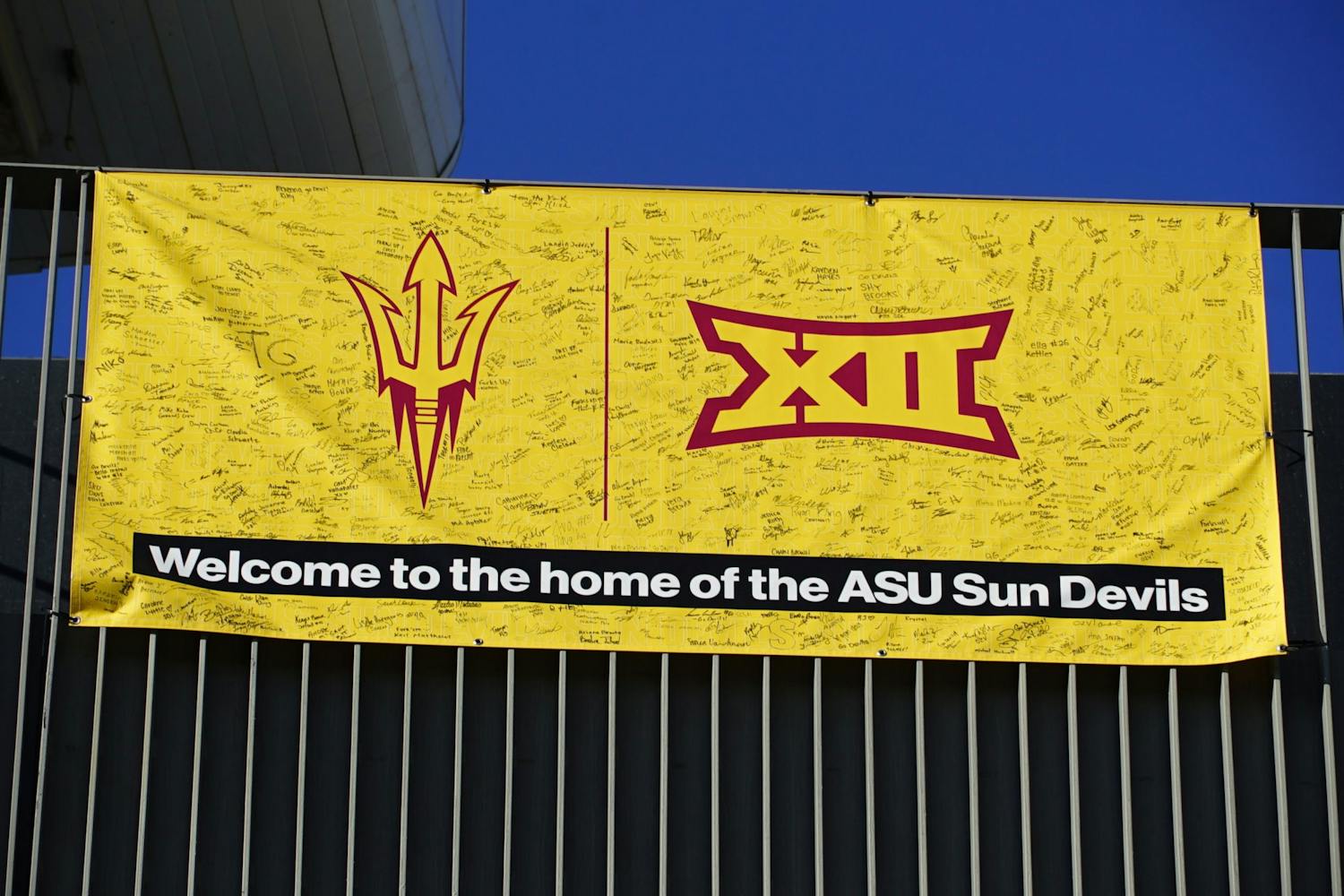Celebrity drag queen Kim Chi performed at ASU along with local drag queens and kings to celebrate Asian Heritage Month and Pride Week.
Her performance continued the message she has been actively spreading since the beginning of her drag career, to break the barriers of intersectionality within the LGBT community by embracing everyone's gender, race and passions.
The event took place April 5 at 6 p.m. at the La Salla Ballroom on ASU's West campus and was put on collaboratively by Rainbow Coaliton, Womyn's Coalition, Asian-Asian Pacific American Students' Coalition, Arizona Drag Stars, RHA-West, USG-West and Spectrum.
Arizona State University tonight! https://t.co/ecBN9sqq8a
— Kim Chi (@KimChi_Chic) April 5, 2017
Biological sciences senior Emily Kwon utilized her position as the president of the Asian-Asian Pacific American Students' Coalition to put on this event after being inspired by Kim Chi's appearance on season eight of RuPaul's Drag Race.
When looking for events to host this semester, Kwon suggested ASU host it's first drag show, which led to one of Womyn's Coalition executive board members to get into contact with Kim Chi's manager to book her appearance.
"I've always wanted to see something like this at ASU," Kwon said. "We don't really publicly support the art of drag, so it was new and amazing."
Kwon is excited about ASU's support of this event, but she believes ASU can take more to public action to support the LGBT community, especially since the community holds such an important place in her life by providing support for her after coming out as bisexual last year. However, this event holds more significance for Kwon since she also has Korean roots like Kim Chi.
"(Kim Chi) is really important to me because there's not a lot of Korean American representation in the media," she said. "Growing up never seeing that was really disheartening, but seeing Kim Chi wearing a traditional hanbok on RuPaul's show made me really happy," Kwon said.
She described Kim Chi's hanbok on the show as a "fresh, new" take on the traditional Korean dress that accurately represented Korean culture in a way that made her proud "seeing how beautiful" it looked on Kim Chi.
"Kim Chi really humanizes Asian-Americans," Kwon said. "She's an entertainer, but she's also real and humble."
Kwon believes the art of drag is important because "it's like watching fire come blazing into a room. Queens are a force to be reckoned with, and they don't stand for discrimination."
She described drag as a beautiful art form where an individual can put on a character that is an extension of themselves in a blur of gender norms.
Watching drag shows and taking part in the coalitions on ASU's campus has helped Kwon find a family in the LGBT community. But "every family has its issues," Kwon said. "We don't want to admit it to ourselves, but sometimes there's even discrimination within the LGBTQIA+ community."
Kwon said she hopes that the intersectional racism in the community can be dispelled through efforts like the drag show.
"This event is very near and dear to my heart," she said. "Intersectionality can really impact individuals. We need to bring together minority communities."
Marketing major Dee Jae Galaxy has also felt the effects of intersectional prejudice as a professional drag king and founder of Arizona Drag Stars.
"The world of drag is still a place of male privilege," they said "I've had to work a lot harder to get where I am as a drag king."
However, they believe there are fewer gender boundaries within the Arizona drag community, saying it was accepting of drag queens as well as drag kings.
As someone who lives outside the gender binary and is a genderqueer performer, Galaxy said that "Kim Chi is phenomenal, not only artistically, but in how she pushes the stereotype that drag queens are bitches. She's super nice and encourages lifting people up."
Galaxy said they try to emulate this uplifting nature in their performances.
Business graduate student Sam Basson also looks up to Kim Chi's work, especially since he saw how she inspired people while working as an english teacher in South Korea. While teaching, Basson had LGBT students who suffered an immense amount psycologically.
Basson said that while he was a teaching in Korea, he had a gay student who was bullied daily due to his sexuality. He said that Kim Chi's performances dressed in the hanbok and in South Korea have made himself and others inspired to address the prejudice against the LGBT community.
"It really means a lot that Kim Chi performs in Korea," Basson said. "I've seen how much it means to the children."
Reach the reporter at mvbandal@asu.edu or follow @marcela_bandala on Twitter.
Like The State Press on Facebook and follow @statepress on Twitter.




